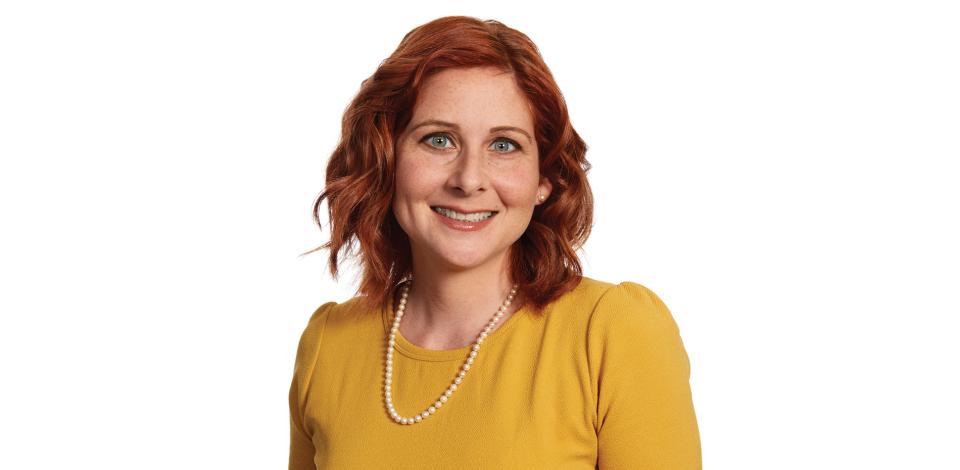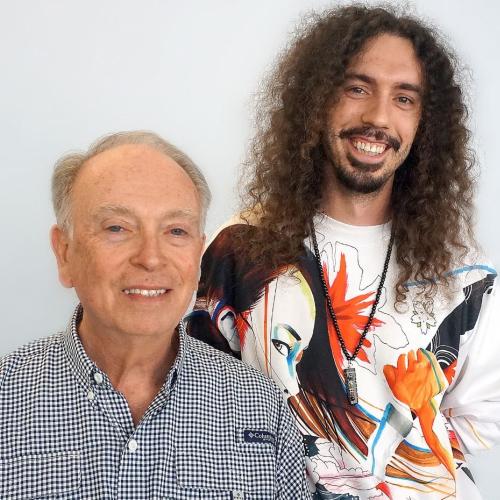First Graduate of OMS Analytics Sees Data Science as More than a Job
Nicole de Vries intends to use her degree to make an impact on the world

Data scientist Nicole de Vries knows that life takes us in unexpected directions, but thanks to Georgia Tech's Master of Science in Analytics (OMS Analytics) program, she didn’t have to postpone her career goals.
“I mean life happens,” said de Vries. “I was living in Georgia, and I had an opportunity to go up to Boston, and I didn't want to have to drop out of school. I was in the on-campus program. And if the online program hadn’t been an option, I don't know if I would have been able to complete the degree.”
de Vries became the first OMS Analytics graduate earlier this year. For her, the program’s core benefit was its flexibility.
I was able to keep my full-time job, and work on classes nights and weekends. They were long nights and weekends, but the flexibility to submit assignments and work on them when you can was great.
A natural problem solver, de Vries delighted in logic puzzles as a child. After earning her undergraduate degree in data management, she spent a decade working in information systems management. But as analytics became an increasingly important part of her job, she decided it was time to go all-in.
“I felt like I knew enough to be dangerous in it,” she said. “I was running basic regressions and doing different trend analysis, but I knew I could go so much deeper.”
de Vries stressed that the OMS Analytics program demanded dedication but that her hard work was met with excellent remote-learning tools. Plus, the program’s customizability allowed her to build exactly the expertise she desired.
“Program Director Dr. Joel Sokol talked with me about moving into the online program when I was considering going in,” de Vries said. "I was able to talk with him about what my specific interests were and tailor my electives to what I wanted to get out of the program. He was really instrumental in feeling out what classes I wanted to do, to focus my program."
For de Vries, this meant extra courses in regression analysis and data management – knowledge she now uses as a data scientist for PavCon LLC. In fact, de Vries was headhunted for the position before she even completed the OMS Analytics program.
“I was on a SCUBA diving drip with my aunt, which we try to do every year,” de Vries said. “We were at dinner, and I was talking at the table about the Georgia Tech program – what I was studying, the type of analytics I had done in my previous job. And I didn't know that a high ranking civilian from the Air Force was sitting across from me. So her ears perked up when I started talking data scientists, data science, and she said, ‘Well, I need a data scientist in Georgia.’”
Now, de Vries’s work focuses on maintenance data for the U.S. Air Force, where a strong analytics background is key.
“A lot of previous decisions in maintenance were made on how many miles, how many hours are flown, instead of specific conditions of exposure, like where were the miles and how impactful,” she said. “Instead of reactive maintenance, we're being proactive about it. With predictive modeling and sensor analysis, we can predict when a part is going to fail. Intervening before failure cuts down on cost, but most importantly, down time. We're also getting to the point of modeling environmental impacts that factor in corrosion to optimize wash and inspection schedules. Without analytics, none of that would be possible.”
de Vries admits that it’s sometimes intimidating being a woman in her field, but that the intimidation is quickly squashed once the work begins. In the OMS Analytics program, her experience was not only defined by gender acceptance but also international diversity.
I got to interact with people from different countries, different backgrounds, different industries. The online program was even more diverse than the on-campus program, which is already super diverse.
"But the online program really draws from disparate locations. And I never once felt minimized as a woman, or singled out or discriminated against – or that my ideas were unvalued. I found Data Science is a logical field, therefore gender equalized and supportive.”
In the end, the OMS Analytics program provided de Vries with the flexibility and the course load she needed to enter the next phase of her career – as well as the confidence that comes with the Georgia Tech name.
“I mean, they're Georgia Tech,” she said. “They're one of the top engineering schools in the world, and I wanted to be a part of something bigger.”
As for the future, de Vries sees data science as more than job. She sees it as a chance to have a lasting, positive effect on the world.
“The area I'm working in right now, billions of dollars are spent every year on corrosion,” she said. “If I can just make a small impact in that area, we're talking major tax payer money that could be spent on other things. It's also environmentally impacting. It reduces waste and consumption. So my future plans are to leverage this degree to impact the world around me and I really feel like I'll be able to do that with data science.”
Written by Robert Lamb

